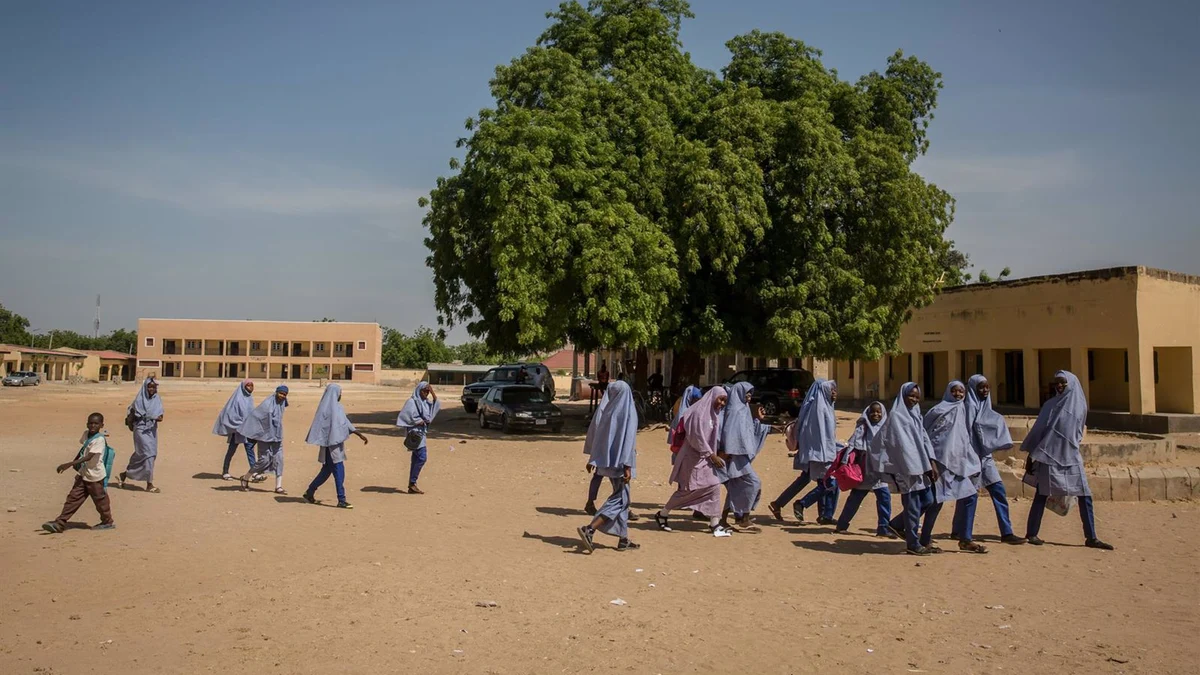
The 287 students kidnapped on the 7th after an attack by armed individuals against a school in Kaduna state, in north-central Nigeria, have been released, the state governor, Uba Sani, reported this Sunday. “I wish to announce that our children from Kuriga school have been released,” Sani said in a statement.
The attack occurred early in the morning of March 7 at the Local Education Authority primary school in the town of Kuriga, when about a hundred attackers – according to what a resident told EFE at the time – attacked the school. The Governor of Kaduna has expressed his “special thanks” to the President of Nigeria, Bola Ahmed Tinubu, for “prioritizing the security of Nigerians and, in particular, for ensuring that the kidnapped Kuriga schoolchildren were released unharmed.”
“While the school children were in captivity, I spoke with Mr. President several times. He shared our pains, consoled us and worked day and night with us to ensure the safe return of the children,” Sani said. “The Nigerian Army also deserves special praise for showing that with courage, determination and commitment can degrade criminal elements and restore security in our communities,” the governor added, without clarify how the children were released or whether a ransom was paid.
They refused to pay the kidnapping
The kidnappers asked the families for a ransom of one billion naira (about 567,000 euros) to free the students and some teachers, Two local civil society leaders confirmed to EFE on the 13th. Speaking to the press that same day in the country’s capital, Abuja, the Nigerian Minister of Information, Mohammed Idris, said that Tinubu had ordered that the Government “do not pay any ransom to any of these criminal elements“.
Some states in Nigeria – especially in the center and northwest of the country – suffer incessant attacks by “bandits“, term used in the country to name criminal gangs that commit mass assaults and kidnappings to demand large ransoms and whose members are sometimes branded by the authorities as “terrorists“.
The attacks are repeated despite repeated promises to end violence by the Nigerian government, which has reinforced the deployment of security forces. Added to this insecurity is that caused since 2009 by the activity of the jihadist group Boko Haram in the northeast of the country and, as of 2016, also by its split, the Islamic State in the West Africa Province (ISWAP, for its acronym in English). English).
Source: Lasexta
Ricardo is a renowned author and journalist, known for his exceptional writing on top-news stories. He currently works as a writer at the 247 News Agency, where he is known for his ability to deliver breaking news and insightful analysis on the most pressing issues of the day.











